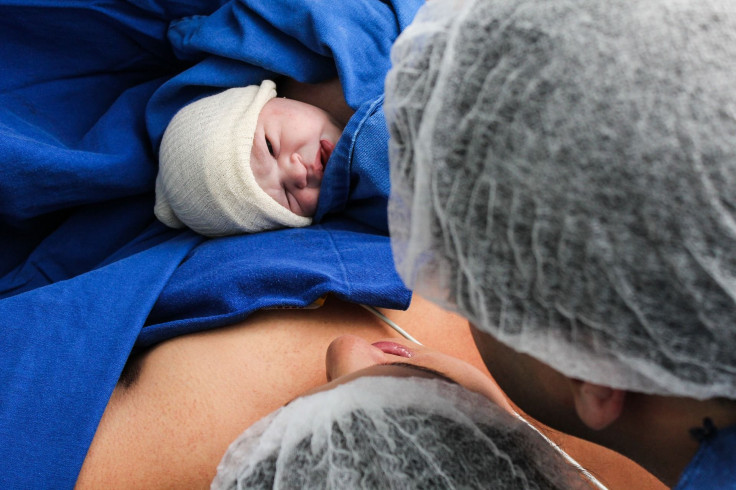Parents Are Refusing US Government Collection Of Newborn Babies' DNA

Parents of newborns in Boston have largely declined to have their babies’ genome sequenced to look for genetic conditions, many because they worry about the data being leaked or insurance companies using it against their children down the road.
The genetic study, BabySeq, is funded by the U.S. National Institutes of Health and places the infant DNA information both in a lab and on a federal database, where it might be used for additional research in the future. Before it is housed in those places, doctors scan the genetic material gathered from babies at Brigham and Women’s Hospital for hundreds of conditions like cancers and disease-causing deficiencies — expanding upon the several severe conditions medical experts already look for in every American newborn, like the lung disease cystic fibrosis and blood disorders.
But according to CBS News, parents are not too enthused about program, even though the information uncovered could potentially save a baby’s life.
“We can’t predict what kind of discrimination is going to be occurring by the time your child grows up,” Brigham and Women’s Robert Green, one of the study leaders, said, according to CBS News.. “We can’t predict whether there’s some sort of privacy breaches, this information gets out and is used against your child in some sort of future scenario. And we, most importantly, we can’t predict the information’s accurate.”
There’s also the possibility that parents will learn their child has a genetic disorder without a cure.
For the researchers, this is more of a trial run for what could be a universal genetic test for newborns: “What we’re really trying to do in this study is ask the question, ‘How beneficial or harmful is it to go down this road?’” Green told CBS News. He said he thinks eventually people will become more comfortable with the idea of this testing and will embrace having this genetic information about their children.
The Brigham and Women’s Hospital Bulletin lists the main objectives of the study as being to learn about the pros and cons of sequencing the genomes of both healthy and sick infants and gauging parental interests and concerns on the process over time.
Despite recent data breaches, like the colossal one over the summer at the credit reporting agency Equifax where hackers accessed millions of people’s Social Security numbers, birth dates and other personal information, parental reluctance to participate in BabySeq is not new. Boston Children’s Hospital, who also has a scientist leading the study, reported a year ago that only about 7 percent of parents were signing up for the genomic testing program, despite preliminary surveys showing more would be interested.
“While many parents are excited about the prospect of learning about their child’s genetic information, the study involves several rounds of questionnaires, a return visit to receive results and a one-year follow-up period, so not every family can make the commitment,” researcher Alan Beggs said in the hospital’s report. “After that, uncertainties around the potential future uses of genetic information are leading many parents to adopt a ‘wait-and-see’ attitude.”
The mothers and fathers who declined to participate in the genetic sequencing most often gave their reasons as not wanting to learn about “unfavorable or uncertain findings”; worrying about insurance companies discriminating against their kids in the future based on the information; and privacy concerns.
“People are distrustful of information gathering. They’re hearing about all these break-ins and hacks,” Green told CBS News. “And I'm afraid they’re turning down the possibility of this information at this time because they just don't trust the future.”
© Copyright IBTimes 2024. All rights reserved.











